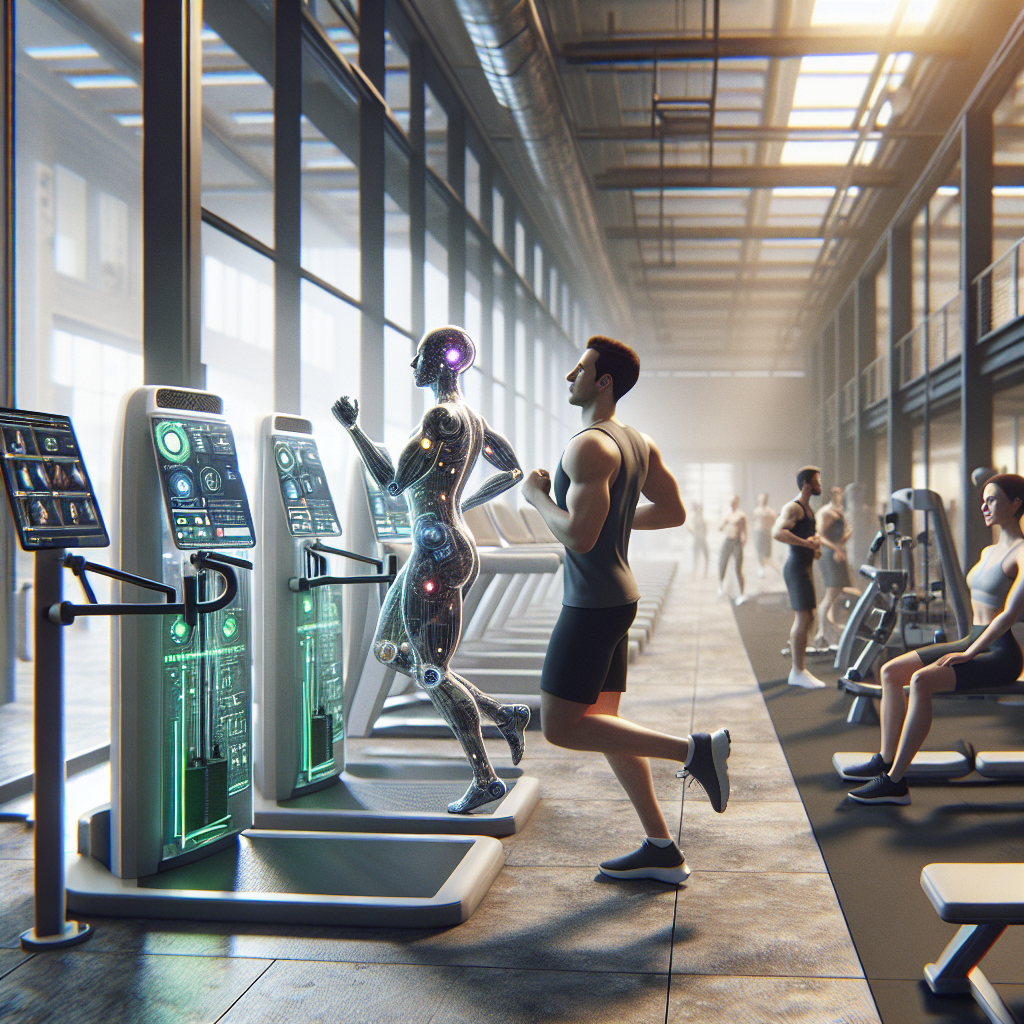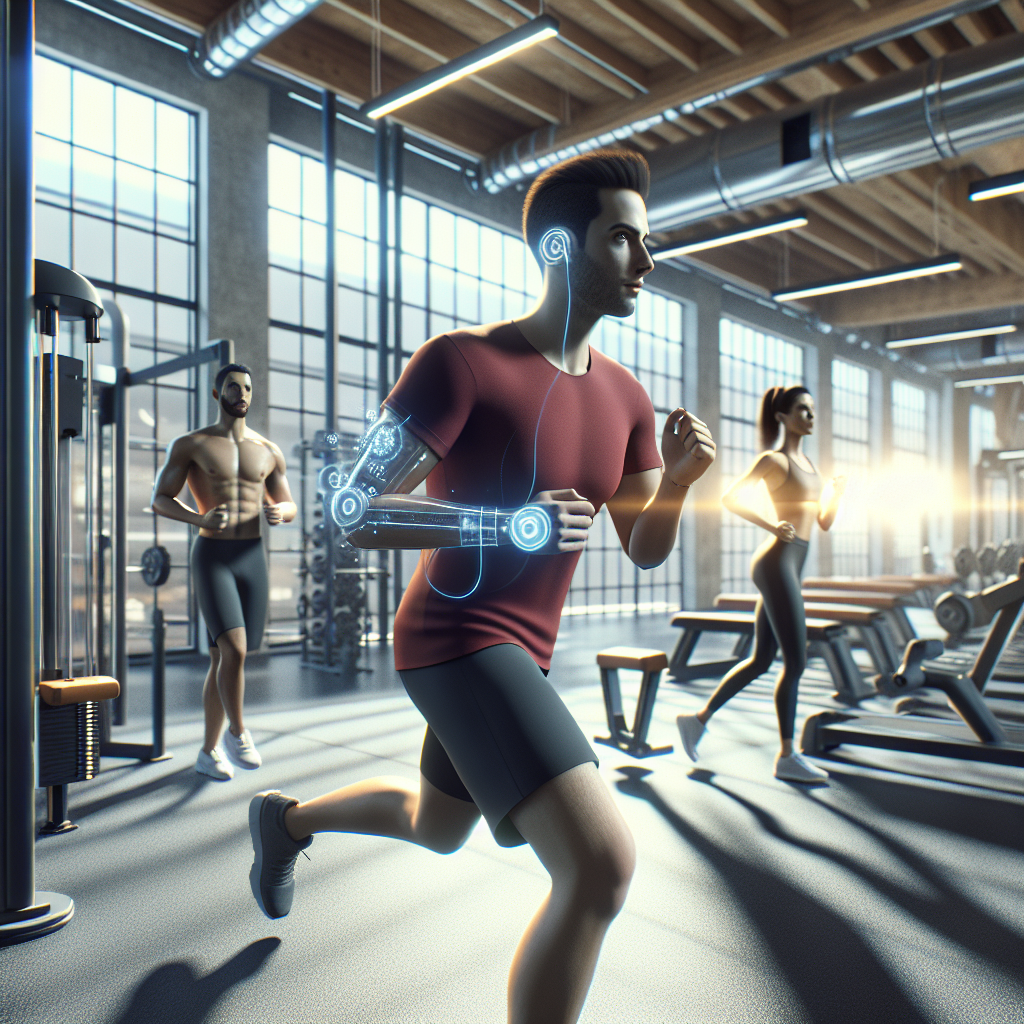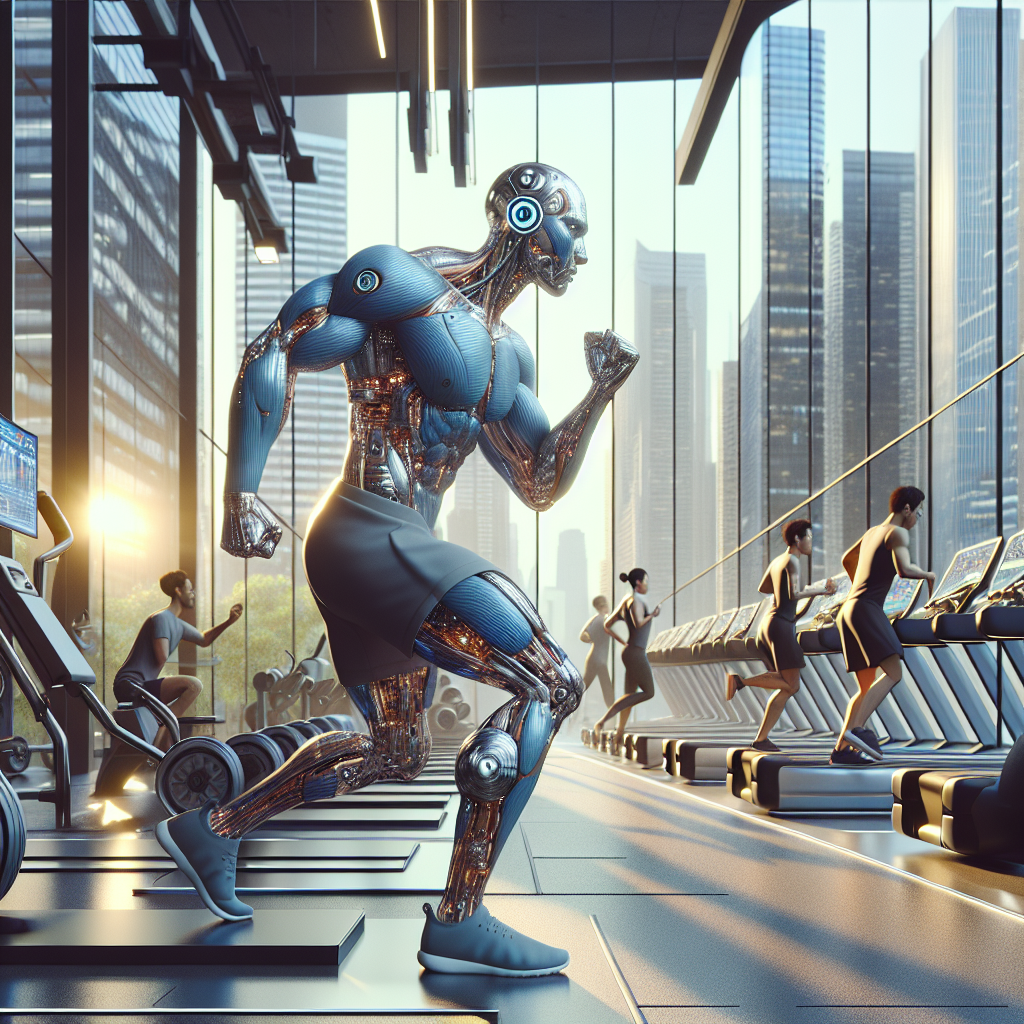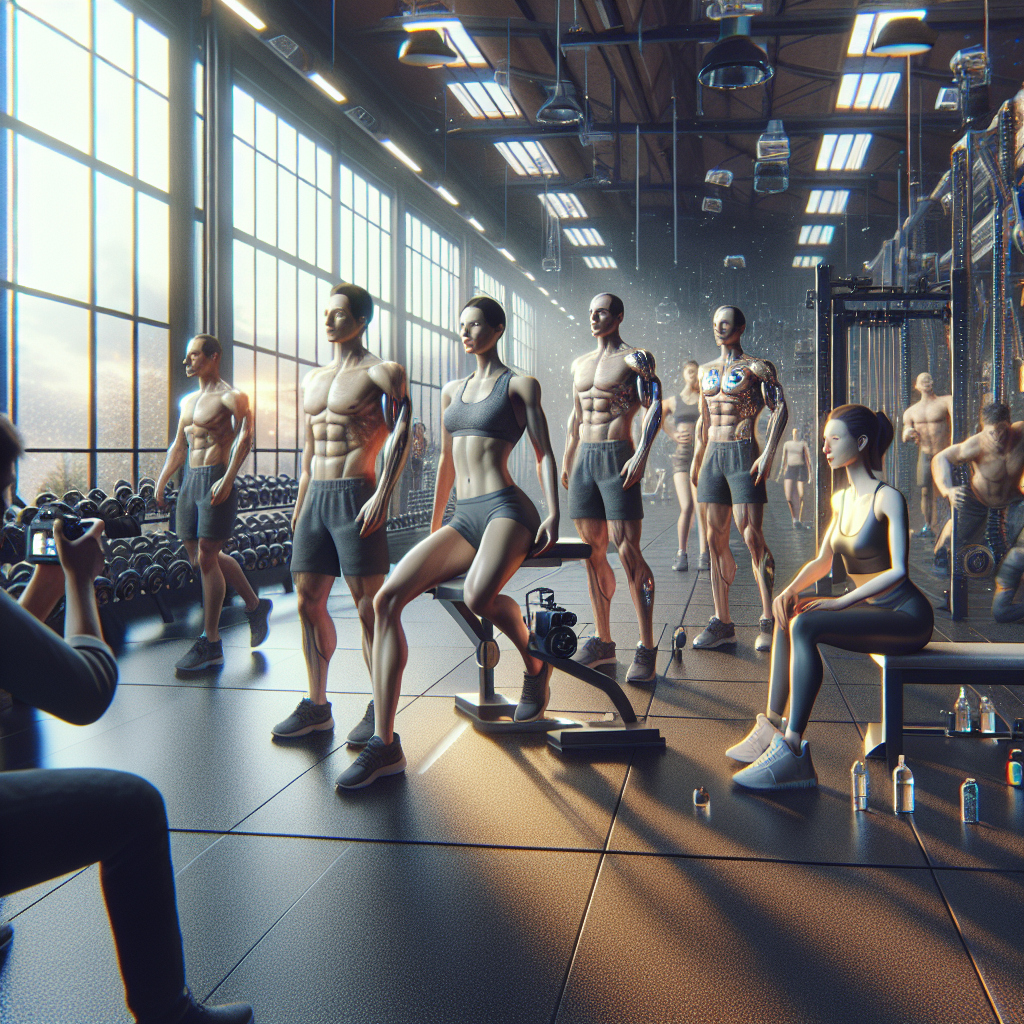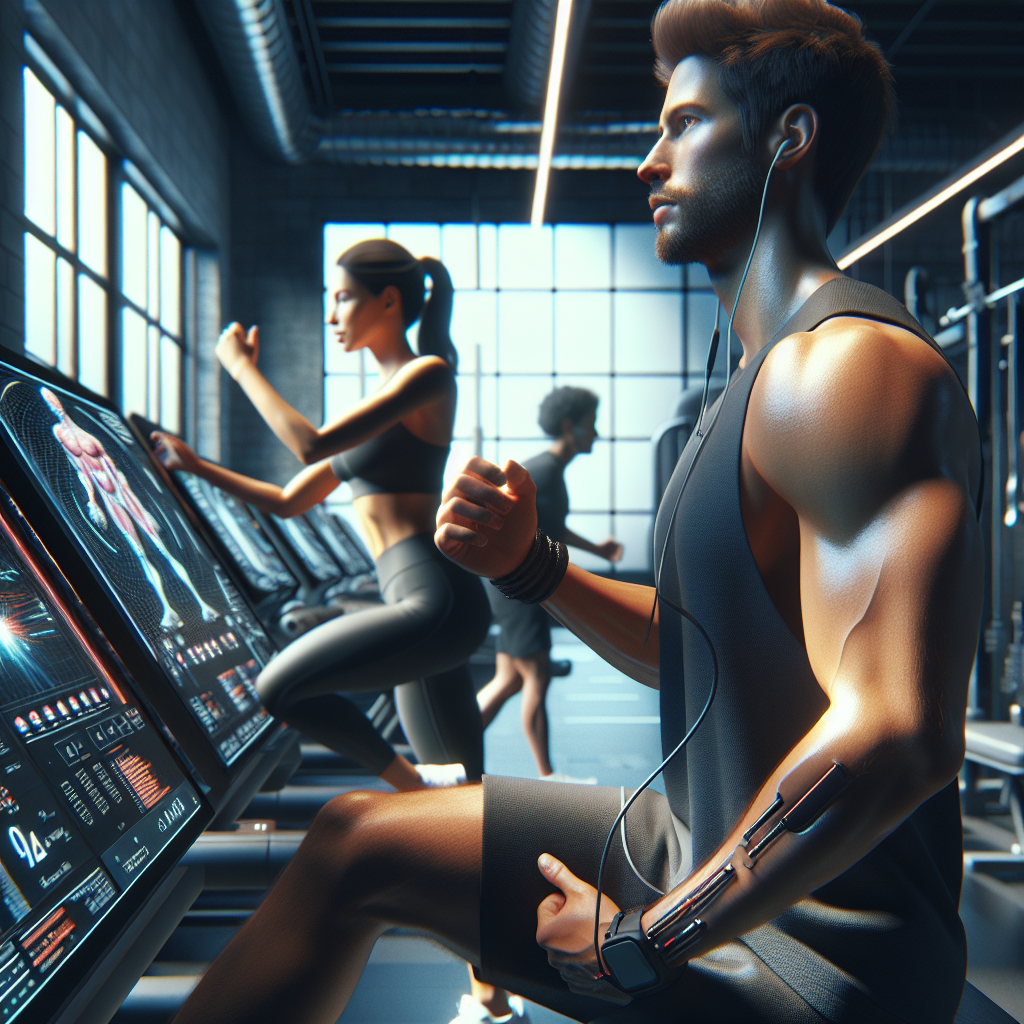Artificial Intelligence (AI) is revolutionizing the personalized fitness training industry by enabling highly customized workout plans, real-time feedback, and data-driven insights. This fusion of technology and fitness empowers individuals to achieve their health goals more efficiently and effectively. With AI’s ability to analyze vast amounts of data, it creates personalized experiences that cater to individual needs, preferences, and progress, thus enhancing overall fitness outcomes.
Understanding Artificial Intelligence in Fitness
Artificial Intelligence, at its core, involves algorithms and machine learning techniques that mimic human intelligence. In the fitness world, AI uses data from various sources to tailor fitness programs that adjust to the individual’s lifestyle and physiological responses.
The Role of AI in Personalizing Fitness Regimens
AI’s primary role in fitness personalization includes:
- Data Collection: Gathering data from wearable devices, fitness apps, and user inputs.
- Data Analysis: Processing this data to identify patterns and insights about the user’s fitness levels and areas for improvement.
- Customized Recommendations: Offering workout plans and dietary suggestions tailored to the individual’s needs and goals.
- Progress Tracking: Monitoring changes and adapting plans to ensure continuous improvement.
AI-Powered Fitness Apps
AI-powered fitness apps have become increasingly popular due to their ability to offer personalized coaching and support. These apps use algorithms to provide:
- Real-time feedback on form and performance.
- Adaptive workout plans that change as the user’s fitness level evolves.
- Integration with other health metrics like sleep and nutrition for a holistic approach.
The Benefits of AI in Personalized Fitness Training
Efficiency and Effectiveness
One of the most significant advantages of AI in fitness is its efficiency. AI systems can quickly analyze data and provide personalized plans that would take human trainers much longer to develop. This efficiency translates to more effective workouts and faster progression toward fitness goals.
Continuous Feedback and Motivation
AI offers continuous feedback, which is critical for maintaining motivation. By providing real-time analysis of workouts and suggesting improvements, AI keeps users engaged and motivated to reach their goals.
Case Study: AI in Wearable Technology
Wearable technology, such as smartwatches and fitness bands, utilize AI to track a variety of metrics, including heart rate, calories burned, and steps taken. These devices can also provide:
- Sleep quality analysis for optimal rest and recovery.
- Stress level monitoring to adjust workout intensity accordingly.
- Personalized daily activity goals based on user history.
Challenges and Limitations of AI in Fitness Training
Data Privacy Concerns
The use of AI in fitness training raises significant data privacy concerns. Users must provide personal and health-related data, which can be sensitive and vulnerable to breaches. Ensuring robust data protection measures is critical to maintaining user trust.
Accuracy and Reliability
While AI has advanced significantly, it is not infallible. The accuracy of AI recommendations can vary, and there’s a risk of over-reliance on technology. It is essential for users to combine AI insights with professional advice when necessary.
Table: Comparison of AI Fitness Tools
| Feature | AI Fitness App | Human Trainer |
|---|---|---|
| Personalization | High, based on data | High, based on observation |
| Cost | Typically lower | Typically higher |
| Flexibility | 24/7 availability | Limited by schedule |
| Human Interaction | Low | High |
Future of AI in Fitness
Emerging Trends
AI in fitness is poised to grow with trends such as virtual reality workouts, AI-driven nutrition advice, and more sophisticated biometric monitoring. These advancements are expected to provide a more immersive and comprehensive fitness experience.
The Role of AI in Promoting Health and Well-being
Beyond fitness, AI has the potential to promote overall health and well-being by integrating with healthcare systems to monitor chronic conditions, suggest preventative measures, and provide holistic health insights.
Chart: Projected Growth of AI in Fitness

Conclusion
Artificial Intelligence is transforming personalized fitness training, making it more accessible, efficient, and effective. While there are challenges to overcome, the benefits of AI, such as personalized plans, real-time feedback, and motivational support, are driving its adoption. As technology continues to evolve, the integration of AI in fitness will likely become more seamless, further enhancing the ability of individuals to achieve their health and fitness goals.
Transform Your Fitness Journey Today!
Discover the Future of Fitness with PurelyFit
Are you ready to achieve your fitness goals without the hassle of expensive trainers, confusing diet plans, or gym memberships? With PurelyFit, you get AI-powered workouts and personalized nutrition plans designed just for you. Experience smarter coaching and revolutionize your fitness journey.
– Enjoy workouts tailored specifically to your goals.
– Access over 600,000 recipes for every lifestyle and dietary need.
– Benefit from real-time progress tracking and adaptive plans.
Don’t wait any longer—start your journey to a healthier, fitter you with PurelyFit now!

